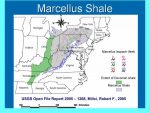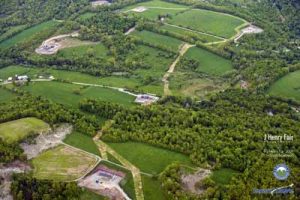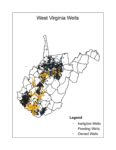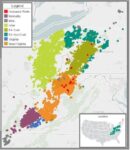On a beautiful autumn day, October 19, 2009, deep in the coal country town of Welch, McDowell County, oral arguments in the well spacing case took place before Circuit Judge Rudolph J. Murensky, II.
There were lawyers representing the various parties with interests in coal, land, and oil and gas, and the West Virginia Oil and Gas Conservation Commission. David McMahon, co-founder of WVSORO, and a public interest lawyer, presented oral arguments representing the interests of surface owners.
Judge Murensky commented that he had read all of the law briefs and that they were well written, and that oral arguments must focus on evidence already presented at the administrative hearing below. He asked the most questions about the huge size of the gas fields for which the oil and gas companies had petitioned the West Virginia Oil and Gas Conservation Commission for special field rules with changes in well spacing. He inquired of each of the lawyers representing oil and gas interests plus the West Virginia Oil and Gas Conservation Commission about how large gas fields generally were relative to the existing issued orders from the Commission.
Judge Murensky also questioned why the lack of findings in the current orders of the West Virginia Oil and Gas Conservation Commission that would justify exceptions to the existing rule with regard to the size of the field, and 3000 foot well spacing. He also stated that with too many exceptions to any rule, it would mean there was no longer a rule.
Judge Murensky also questioned if surface owners could veto a well permit, and at what point in the process they were allowed that prerogative. He also questioned that if surface owners gave their consent, were they still eligible for compensation for damages to their property.
Judge Murensky also stated that land possession rights are an emotional issue, and in his experience he has seen situations where land possession rights cases were more emotional than divorce cases.
In addition to the lawyers representing the various interested parties there were also 30-40 observers present in the court room. Noted as present by Mr. McMahon were the General Counsel of the Pocahontas Land Company, the Executive Director of the West Virginia Oil and Natural Gas Association, the chairman of the West Virginia Oil and Gas Conservation Commission and one staff member, two members from the West Virginia Surface Owner’s Rights Organization and numerous unidentified attendees.













